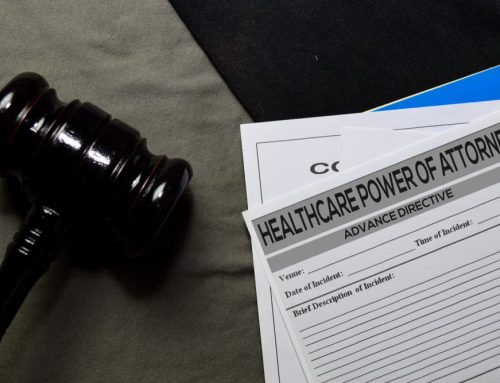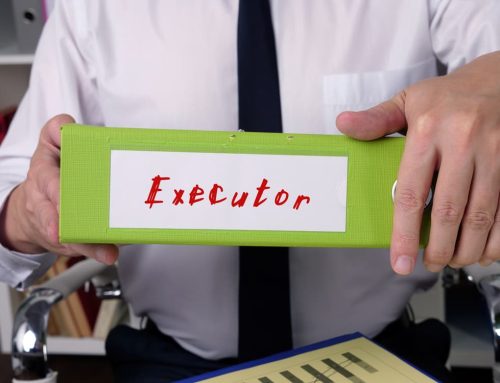How Does Probate Affect Minor Children?
How Does Probate Affect Minor Children?

Does probate affect minor children? In essence, yes. Probate determines critical aspects of a minor child’s future, including guardianship, inheritance management, and the oversight of their financial well-being. If a parent passes away without a comprehensive estate plan, the probate court steps in to address these issues.
For families, this process often involves appointing a legal guardian, managing the child’s inheritance until they come of age, and setting clear terms for ongoing supervision by the court.
An experienced Miami probate lawyer can provide valuable insights, helping families understand their rights and guiding them through the legal complexities with care and professionalism.
The Basics of Guardianship
When a parent dies and leaves behind children under 18, one of the court’s first concerns is deciding who will care for them. This process is about more than just who the kids live with—it also affects their legal rights, schooling, health decisions, and access to inherited assets.
Legal Guardianship vs. Physical Custody
Legal guardianship gives someone the legal authority to make decisions for a child. That includes things like enrolling them in school, authorizing medical treatment, and handling financial matters. Physical custody, on the other hand, only refers to where the child lives and who takes care of them day to day.
For example, an aunt in Little Havana may already be taking care of her niece after her sister passed away. She might have physical custody. But unless the court grants her legal guardianship, she can’t make many of the decisions that come with parenting. Probate steps in to bridge that gap.
How Courts Determine Guardians if Not Specified in a Will
If a parent didn’t name a guardian in their will—or didn’t have a will at all—the court decides who steps in. Florida judges look at the best interests of the child. They might weigh factors like:
- The existing relationship between the child and the proposed guardian
- The guardian’s ability to provide a stable home
- Any history of abuse, neglect, or financial instability
- The child’s preference, depending on age and maturity
It’s not uncommon for multiple relatives to step forward, especially in large families. This can lead to disputes, with siblings, grandparents, or even stepparents vying for guardianship. Miami probate courts, including those in Doral and South Miami, handle these cases regularly and try to balance family ties with safety and stability.
Timeline for Guardian Appointment
Temporary arrangements can happen quickly—sometimes within days. However, permanent guardianship appointments take longer, usually several weeks to a few months. During that time, the court may appoint a temporary guardian or place the child with a relative while the formal process plays out.
Financial Protection for Minors
Children can’t legally own property or manage money until they turn 18. If a minor inherits something during probate—like a home, a life insurance payout, or savings—the court has to make sure that property is handled responsibly.
Why Children Cannot Directly Inherit Property
The law treats minors as too young to handle large sums of money or complex decisions like managing real estate. Without safeguards in place, a 10-year-old in North Miami can’t suddenly become the titleholder of their parent’s house. Instead, Florida law steps in to create a structure for how that inheritance is managed until the child comes of age.
Property Management Options (Trusts vs. Conservatorships)
If a parent created a trust before they passed, that trust often names a trustee to manage the child’s inheritance. The trustee has a legal duty to use the money for the child’s benefit—paying for education, housing, or other needs—until they’re old enough to take over.
Without a trust, the court might appoint a conservator (also called a guardian of the property) to do the job. This person handles the assets under the court’s supervision and files regular reports.
Trusts typically offer more flexibility and privacy. Conservatorships come with stricter rules and more oversight. Both approaches have pros and cons, and the better choice depends on the family’s situation.
How Custodial Accounts Work Within Probate
Sometimes, smaller inheritances are placed in a custodial account under the Florida Uniform Transfers to Minors Act (UTMA). This option avoids full guardianship or trust proceedings but still puts an adult in charge of the money until the child turns 21 (or sometimes 18, depending on how the account is set up). These accounts are commonly used for assets under a certain value and are easier to manage during probate in places like Miami Shores or Westchester.
The Role of the Court in Protecting Minors
When minor children are involved in a Florida probate case, the court doesn’t just oversee the distribution of assets. Judges also take on a protective role to make sure the child’s well-being and inheritance stay secure. From approving key decisions to requiring regular updates, the court acts as a safeguard to prevent mismanagement or abuse.
Court Oversight of Guardians
Once a guardian is appointed—whether for the child’s care or for managing their assets—the court keeps tabs on that guardian’s actions. Guardians can’t make major changes to a child’s living situation, education, or healthcare without notifying the court. If a guardian in Miami Gardens wants to move the child to another county, for example, they may need court approval first. Judges pay close attention to these moves to ensure they serve the child’s best interests.
The court may also assign a guardian ad litem in some cases—an independent person who investigates and makes recommendations solely focused on what’s best for the child. This added oversight often happens when family members disagree about what should happen next.
Approval Requirements for Financial Decisions
When a minor inherits money, the court typically restricts how those funds can be used. Even when a parent leaves instructions, the guardian must ask for court approval before making major financial moves. That includes:
- Selling real estate inherited by the child
- Withdrawing money from a custodial or conservatorship account
- Making large purchases not clearly tied to the child’s needs
For instance, if a guardian in Overtown wants to use part of the child’s inheritance to buy a vehicle “for the household,” the court might reject the request unless it directly benefits the child, like for transportation to school or medical appointments.
Regular Accounting and Reporting Obligations
Guardians responsible for a child’s assets must file detailed reports with the court on a regular schedule—usually once a year. These reports must list income received, expenses paid, and the remaining balance. Supporting documents like bank statements and receipts often need to be included.
If the numbers don’t add up or if something looks off, the court can investigate. In some cases, the guardian may need to attend a hearing to explain the discrepancies. If serious issues arise, the judge can order the guardian to repay funds—or even appoint someone else.
This level of oversight helps protect minors from financial exploitation, even by well-meaning family members who might not fully understand their responsibilities. It also gives relatives peace of mind that someone’s watching out for the child’s long-term stability.
In neighborhoods across Miami—from Liberty City to West Flagler—families often find comfort knowing the court acts as a backstop, stepping in when something doesn’t seem right. The system may not be fast, but it does aim to keep the child’s interests front and center throughout the probate process.
Special Considerations for Blended Families
Blended families often face extra layers of legal complications during probate. When a step-parent steps up after a biological parent’s death, the court has to sort out who holds what rights.
Step-Parent Rights and Limitations
In Florida, step-parents don’t automatically become guardians just because they helped raise the child. Unless they’ve legally adopted the child or were named in a will, they might have no legal authority to continue care. This surprises many families in areas like Brickell or Pinecrest, where blended households are common.
Biological Parent vs. Legal Guardian Distinctions
If the surviving biological parent is still living, they usually have the strongest claim to custody—unless the court finds them unfit. But if both biological parents have passed, or one has been absent for years, the court might lean toward someone who’s been a consistent presence in the child’s life.
Potential Conflicts and Court Resolution Processes
Blended families sometimes find themselves at odds—especially when step-parents and grandparents disagree about guardianship or inheritance. Miami-Dade probate courts handle these disputes by reviewing evidence, interviewing witnesses, and sometimes appointing a guardian ad litem to represent the child’s interests.
Estate Planning to Avoid Probate Complications
Families who prepare in advance can often avoid court involvement altogether—or at least limit how long the process takes. Several planning tools exist that protect children and help prevent court battles.
Revocable Living Trusts
A revocable living trust lets you place assets under the care of a trustee during your lifetime. When you pass, the trust continues without going through probate. That means quicker access to funds, no court supervision, and privacy for your family. This approach works well for parents in areas like Coral Gables or Palmetto Bay who want to ensure their children’s care without legal interference.
Transfer-on-Death Designations
Certain accounts—like retirement funds or brokerage accounts—let you name a beneficiary who receives the funds automatically when you die. This skips probate entirely. Just make sure to update your designations regularly to avoid surprises.
Life Insurance Policies with Proper Beneficiary Designations
Life insurance payouts can provide financial stability for children after a parent’s death. But those benefits may get held up in probate if no beneficiary is listed—or if the beneficiary is a minor. A better solution often involves naming a trust as the policy’s beneficiary, which ensures the money is used according to your wishes.
Intestate Succession and Minor Children in Florida
When someone dies without a will, Florida law decides who inherits the estate. This is called intestate succession, and it can lead to outcomes the parent never intended.
Protect Minor Children in the Probate Process With the Help of THe Estate Plan
Families dealing with probate and minor children deserve clear answers and practical guidance. The Estate Plan helps parents and relatives in Miami and across South Florida protect their families and honor their loved one’s wishes.
Whether you’re in Coral Gables, Miami Lakes, or right near the courthouse in Downtown Miami, our attorneys handle guardianship petitions, estate administration, and probate disputes with experience and care.
Are you ready to make sure that the probate process doesn’t affect minor children in a negative way? Let us review your situation, explain your options, and help you take the next step. Contact estate planning attorneys at The Estate Plan online or at (305) 735-2689 to protect what matters most.
Have questions about how to get started on your estate plan or estate needs?
Have questions about how to get started
on your estate plan or estate needs?
Contact the experienced estate planning professionals at The Estate Plan
by calling us at (305) 677-8489.
Contact the experienced estate planning professionals at The Estate Plan by calling us at
(305) 677-8489.



















